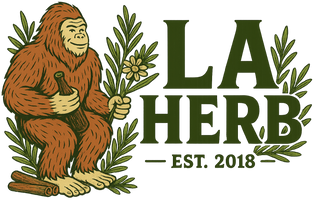Long COVID, characterized by persistent symptoms such as fatigue, brain fog, respiratory issues, and muscle pain, has left many searching for effective, natural remedies. Herbs, with their rich history in wellness and recovery, offer a promising way to support the body’s healing process. Unlike synthetic treatments, herbs work holistically, targeting inflammation, boosting immunity, and restoring energy levels. Here’s a guide to some of the best herbs for battling long COVID symptoms.
1. Ashwagandha
Ashwagandha is an adaptogen known for its ability to combat stress and fatigue. It supports adrenal function and helps the body adapt to physical and mental stressors, making it particularly beneficial for those experiencing post-viral exhaustion. Regular use of ashwagandha can improve energy, reduce brain fog, and enhance sleep quality.
2. Elderberry
Elderberry has long been celebrated for its antiviral and immune-boosting properties. Rich in antioxidants and vitamins, it helps the body recover from lingering viral remnants and reduces inflammation. Its ability to strengthen the immune system makes it a key herb for long COVID recovery.
3. Turmeric
Curcumin, the active compound in turmeric, is a potent anti-inflammatory agent. It helps alleviate systemic inflammation, a common issue in long COVID sufferers. Adding turmeric to your diet or taking it as a supplement can support joint health, improve respiratory function, and enhance overall well-being.
4. Ginger
Ginger is renowned for its ability to support digestion and reduce inflammation. Many long COVID sufferers experience gastrointestinal issues, and ginger can soothe the stomach, alleviate nausea, and enhance nutrient absorption. It’s also a natural circulatory stimulant, helping to oxygenate tissues and fight fatigue.
5. Nettle Leaf
Nettle leaf is a nutrient powerhouse, packed with vitamins, minerals, and antioxidants. It supports respiratory health, reduces inflammation, and provides a gentle energy boost. For those struggling with fatigue and shortness of breath, nettle tea is a natural tonic to incorporate into daily routines.
6. Peppermint
For individuals experiencing headaches or respiratory discomfort, peppermint is an excellent herb. Its cooling and soothing properties help relieve tension headaches, open up airways, and improve breathing. Peppermint tea or essential oil inhalation can be particularly beneficial.
7. Licorice Root
Licorice root supports respiratory health and has antiviral and anti-inflammatory properties. It soothes sore throats, reduces coughing, and helps clear mucus from the lungs. Additionally, it acts as an adaptogen, helping to regulate stress hormones and restore balance in the body.
8. Milk Thistle
The liver is a critical organ for detoxification, and long COVID can often leave it overburdened. Milk thistle supports liver health, aids in detoxification, and promotes cellular regeneration. It is especially helpful for those taking medications or experiencing fatigue due to toxin buildup.
9. Holy Basil (Tulsi)
Holy basil is another adaptogen that helps reduce stress, boost energy, and improve mental clarity. It also has antimicrobial and anti-inflammatory properties, making it an excellent herb for tackling lingering viral symptoms. Drinking tulsi tea can calm the mind and support immune resilience.
Practical Tips for Using Herbs
- Teas and Infusions: Many herbs, such as nettle, peppermint, and ginger, can be brewed into teas for easy daily consumption.
- Tinctures: Alcohol-based extracts are highly concentrated and provide a convenient way to take herbs.
- Capsules and Powders: Herbs like ashwagandha and turmeric are readily available in supplement form, ensuring consistent dosing.
- Cooking and Beverages: Incorporating herbs like turmeric and ginger into meals or smoothies is an easy way to reap their benefits.
Precautions
While herbs are generally safe, it’s essential to consult a healthcare professional before starting any new regimen, especially if you’re taking medications or have underlying health conditions. Some herbs, like licorice root, may not be suitable for individuals with high blood pressure or certain hormonal conditions.
